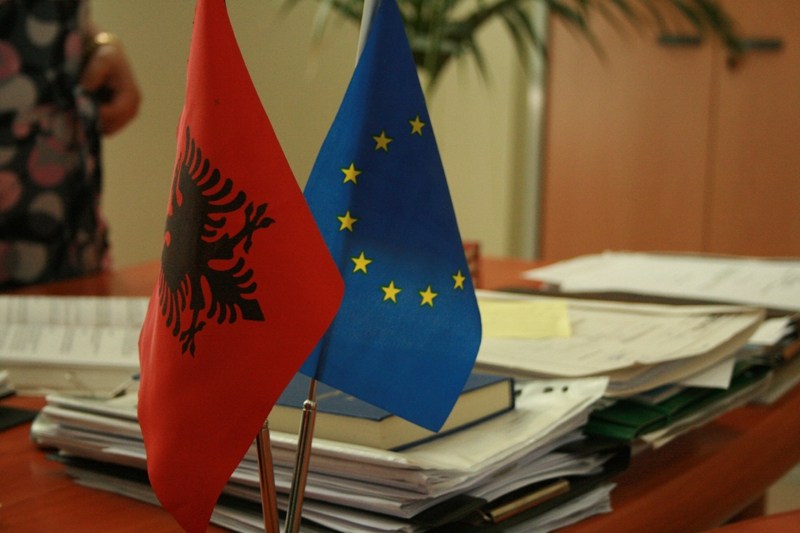The European Council decided last week to open accession negotiations with Albania and North Macedonia after they were blocked last October. For Albania there are still reform conditions to meet.
“Opening of accession talks sends a loud and clear message not only to the two countries, but to the Western Balkans as a whole. It reaffirms and delivers on the EU's commitment to the European perspective of the region: its present is with the EU and its future is in the EU,” said Olivier Varhelyi, Commissioner for Neighbourhood and Enlargement (25 March).
According to the Commissioner, the decision demonstrates that “Europe is willing and able to take geopolitical decisions even in these trying times of corona virus pandemic.” In fact, the decision was long over-due and the public expects much more from the Commission during the crisis.
The Council invited the Commission to submit proposals for a framework for negotiations with both countries. The necessary preparatory work is expected to start immediately. An intergovernmental conference should also be convened as soon as possible after the adoption of the negotiating framework by the Council.
In both cases, the Council decision was taken on the basis of the Commission’s updated country reports of 2 March. According to the reports, both countries “had demonstrated their determination to advance the EU reform agenda and had delivered tangible and sustained results, fulfilling the conditions identified by the June 2018 Council for the opening of the accession negotiations”.
However, prior to the first intergovernmental conference, Albania has to implement a number of reform measures which will impact on the actual start of negotiations.
The Commission, in its report, was more positive and concluded that, overall, Albania has increased its efforts and delivered "further tangible and sustainable results" in recent months in a number of key areas, such as electoral reform, justice reform, the fight against corruption, the fight against organised crime, and unfounded asylum applications by Albanian citizens to EU member states.
The fight against corruption and organised crime remains “a long-term objective that continues to require additional structured and consistent efforts” but the same can be said about some member states that joined the EU in the latest enlargement rounds.
The Council added more conditions such as tangible progress regarding reform of public administration as well as further progress in the adoption of legislation on the protection of national minorities.
The Brussels Times asked the Commission at today’s on-line press briefing in Brussels if the Council decision implies that negotiations will start first with North Macedonia? When does the Commission estimate that Albania will be ready?
A spokesperson for the EU enlargement negotiations replied that the Commission expects the reform work to continue in both countries. In Albania, work is on-going and well-advanced. Given the pace of work, the Commission is convinced that the conditions will be met soon.
Each country will apparently, but not necessarily, start the negotiations at different dates, based on their own merits and progress. For the time being, no specific date is set for the first intergovernmental conference.
M. Apelblat
The Brussels Times

